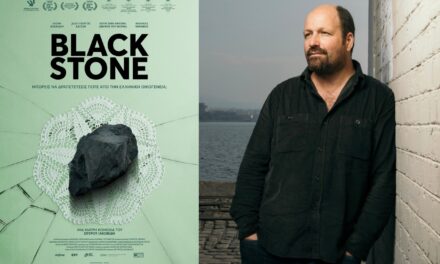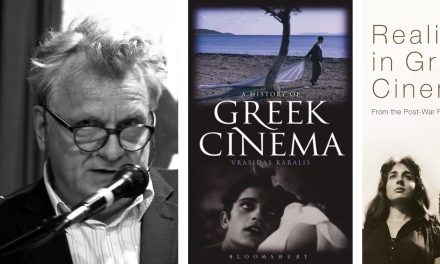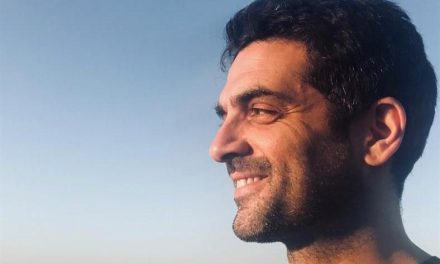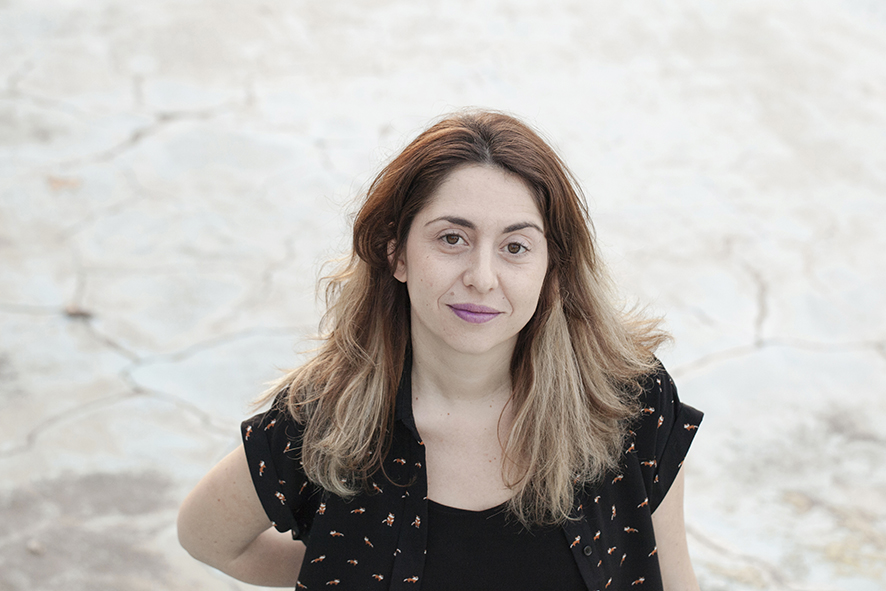
Another version of ‘Greek summer nights’ is presented by talented director Sofia Exarchou in her film Animal. The film premiered at the Locarno International Film Festival where leading actress Dimitra Vlagopoulou won the Best Performance Award. Animal was also the winner of the prestigious Golden Alexander Award at the Thessaloniki International Film Festival and numerous other awards around the globe.
Against the backdrop of a summer resort, where tourists flock every summer and the ‘fun’ never ends, Animal follows a peculiar group of entertainers, led by Kalia. Every single night they present their ‘artistic’ program on the stage of an all-inclusive resort. A stage filled with paper decorations, glossy costumes, comedy sketches, faux karaoke, and cheap glitter. This extravaganza seems to be leading Kalia into her own, lonesome soul-searching, existential experience. As the summer moves on, things seem to be getting out of control, revealing the illusions and the darkness that underpins this reality. Still, when the lights are back on, the show must go on.
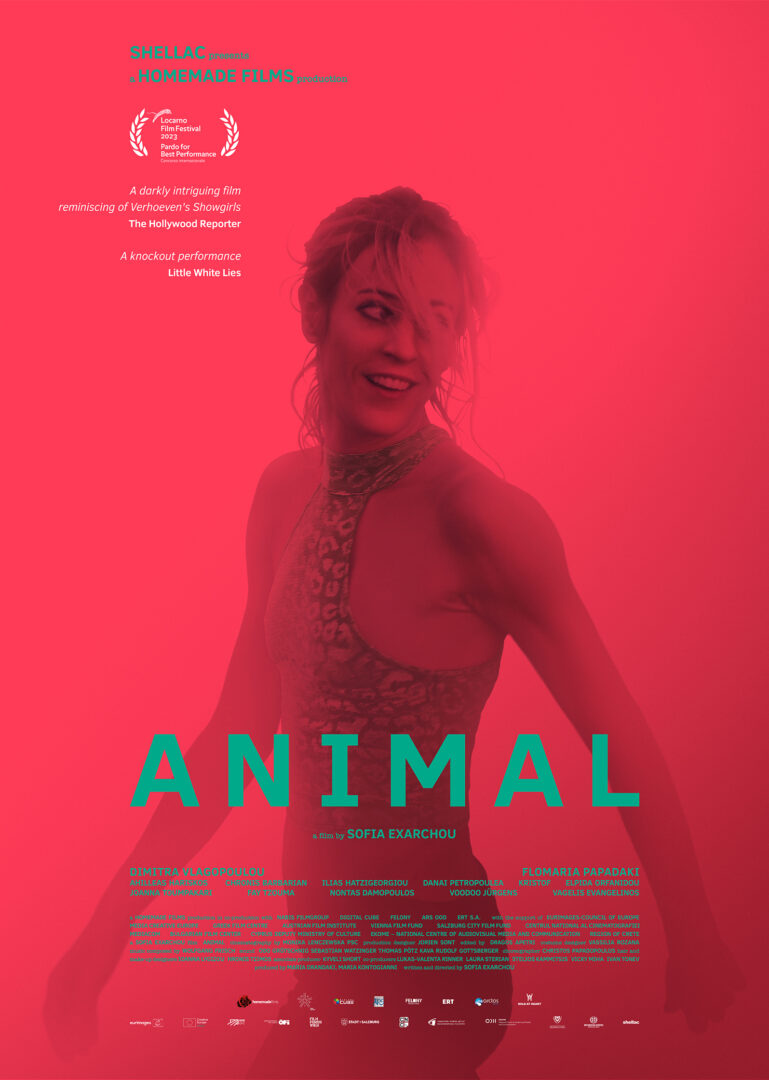
Sofia Exarchou was born in Athens. She studied electrical engineering at the National Technical University of Athens, directing at the Stavrakos School and theatre at the Stella Adler Studio of Acting in New York. She pursued her postgraduate studies at the ESAV School in Toulouse. In 2014, she was selected to participate in the Sundance Screenwriters & Directors’ Lab. Park, her first feature film, premiered at the Toronto Film Festival and the San Sebastian Film Festival, where it won the New Directors Award.
Sofia Exarchou spoke to Greek News Agenda* about Animal, the system that we are trapped in, and her carefully crafted characters.
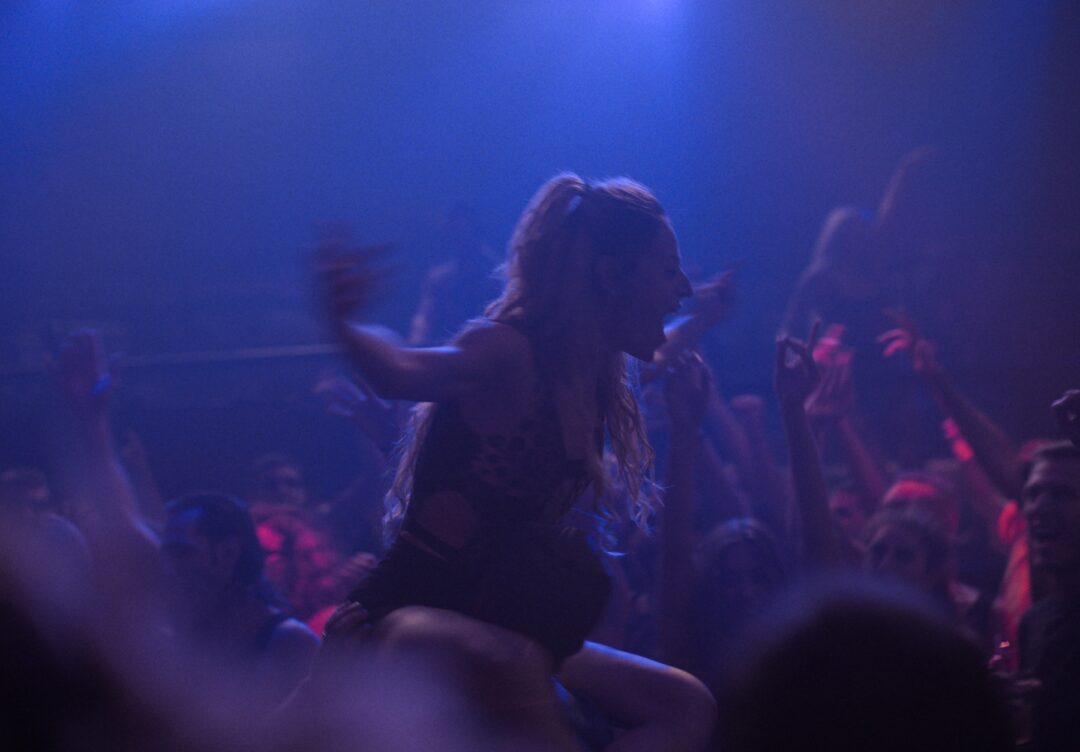
How did you come up with the idea of focusing on this particular group of entertainers? Did you want to make a statement on the working conditions today?
Following my first feature film, Park, I knew I wanted to make a film about the working conditions in the Western world, the working systems today. I also realized very quickly that I wanted to focus on the tourism industry because it’s a world I already knew well and wanted to explore further.
It is the backbone of our economy and a key part of our identity. Initially, I thought that the protagonists of my film would be the employees of an all-inclusive hotel in general and not just the entertainers. During the writing process though, I decided to focus on the entertainers and the entertainment industry nowadays. How it is offered, under what circumstances, and how important and necessary it is ultimately for the smooth functioning of the capitalist system.
How did the role of Kalia come about and how was Dimitra Vlagopoulou, who perfectly portrays her, chosen?
I knew very early on that my protagonist in this film would be a woman, 35 years old, who had been working for many years as an entertainer in an all-inclusive hotel. A woman who had “sunk” into this world. A woman whose boundaries between personal and professional life are becoming dangerously blurred. This idea was the starting point for her story.
Dimitra and I had already worked together at the Park, so we’ve known each other for a long time. Dimitra is not just a graduate of the National Theatre School, but also of the State School of Dance, which is critical in the film, as Kalia is a very good performer who dances and sings every night in front of the hotel guests. Therefore, the actress who would portray her would have to have considerable training in dance and movement as well as a special relationship with her body, which plays a key role in the film.
However, the most important reason I decided to work with Dimitra again is that we are a great match at work. Going through different stages that intertwine and complement each other (such as research, constant discussions, improvisation, and rehearsals), we tried to discover more about the role. Through this process, we tried to understand the character and gradually “synthesize” it, going deeper and deeper. I think we communicate very well on a creative level and constantly inspire each other.
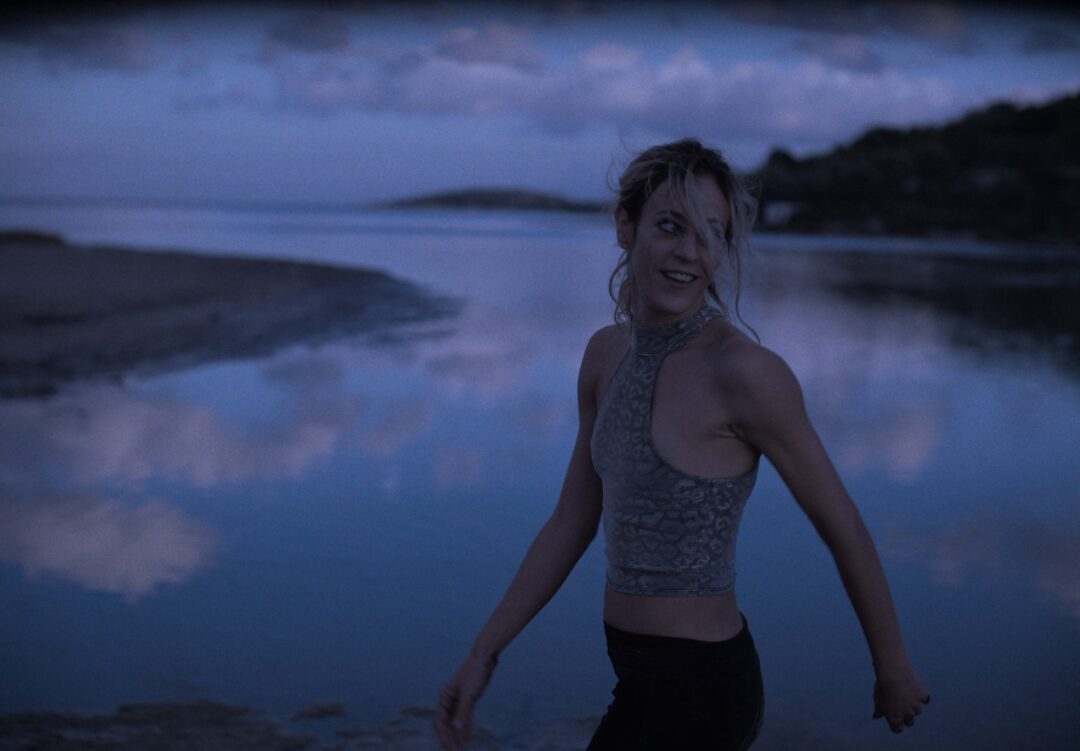
The group of entertainers seems to be trapped in a reality that leaves them no room for hope for a better tomorrow. Do you think they are in this situation by choice or because of an exploitative system?
I think it’s very clear from the way the heroes’ stories are introduced and developed that all the characters in Animal are trapped in a very specific system. A system, with a clear and strict structure, with specific rules and conditions, in which they are trapped with no possibility of escape or much room for hope. This system is never personified in Animal as a particular employer or hotel manager but is constantly present in every scene of the film. It is what defines the choices the entertainers make every day, on a personal and professional level. It is, in narrative terms, the antagonist of the film, an unbeatable antagonist.
Kalia’s existential journey highlights precisely the conflict with the antagonist system, which is a losing battle. The film follows this woman as she confronts this realization.
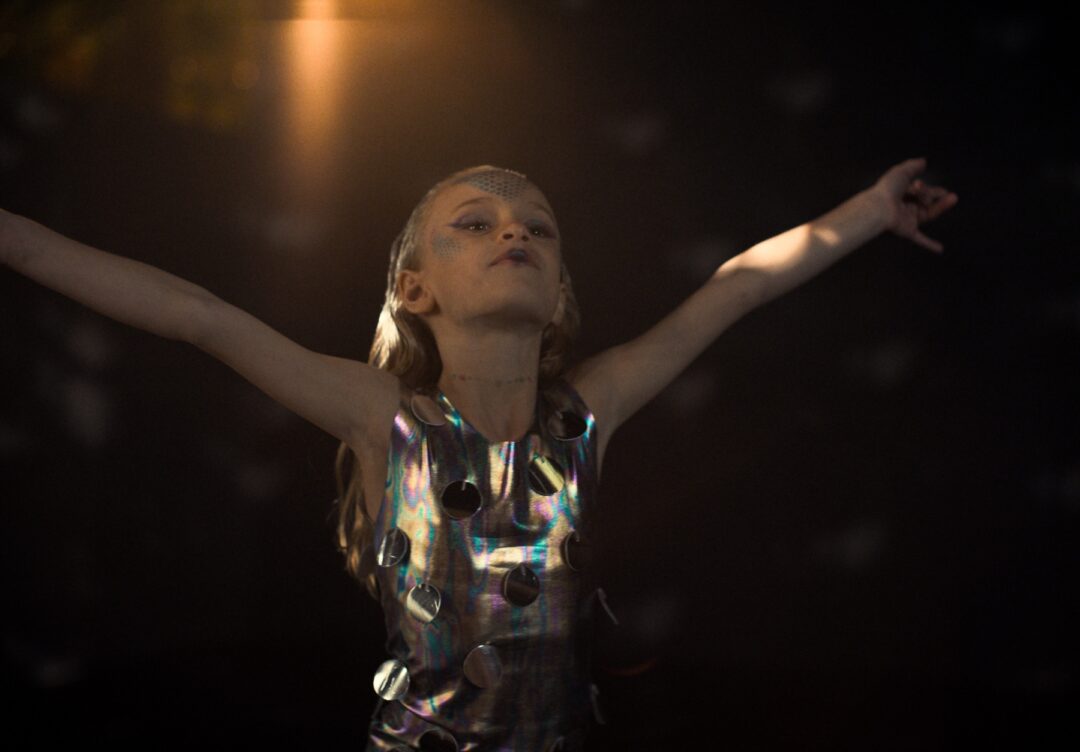
What does the little girl symbolize?
When I started writing Animal, I already had the image of a child wandering around in this world in my mind. Like children who followed traveling troupes or a circus. Many ideas came to my mind about this little girl, this innocent observer. I was also very interested in the idea of a character who had been born into this environment. A character that this is the only world she knows.
The two central characters in Animal are 35-year-old Kalia and 17-year-old Eva, who follow two separate, almost opposite paths. I began to process the idea that Eva could act as Kalia’s mirror, as a possible backstory for her. Then it occurred to me that the little girl could follow this pattern as well. That’s how this triangle of female characters was created. The viewer follows their different journeys in parallel, but at the end of the film, he has the feeling that what he followed was maybe the story of the same woman in three different periods of her life.
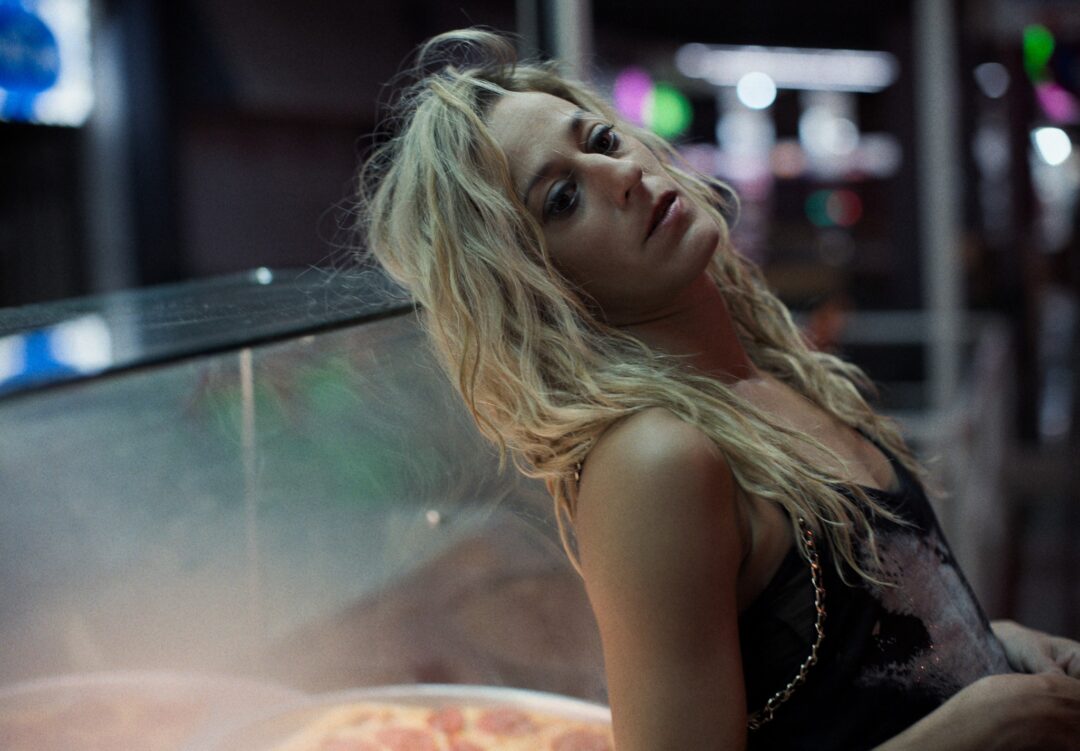
Do you think that cinema should raise concerns about certain issues or is there room for self-reflection?
Of course, there is room for self-reflection but this does not mean that the film cannot raise issues at the same time. Every film mirrors the way the director thinks about the world. Is there anything more self-referential than that? On the other hand, the starting point for each director can be very different. The need that arises for him to tell a particular story can be very different each time. For me, most of the time my starting point is a universe, an environment that raises questions for me politically, and socially. This universe very quickly becomes the canvas on which my characters’ stories begin to develop. As I write the script, I follow them obsessively, as if I were constantly looking at them through a microscope.
I am constantly trying to understand them and to capture their experience, their experience in this universe. For other directors, the starting point may be more self-referential or a combination of both. In any case, I think that no director can fully understand the reasons that led him or her to choose this particular story among so many others he or she could think of. I understand throughout the process that there are elements that connect and move me deeply without ever being able to fully interpret the reasons that led me to this choice, to this particular story.
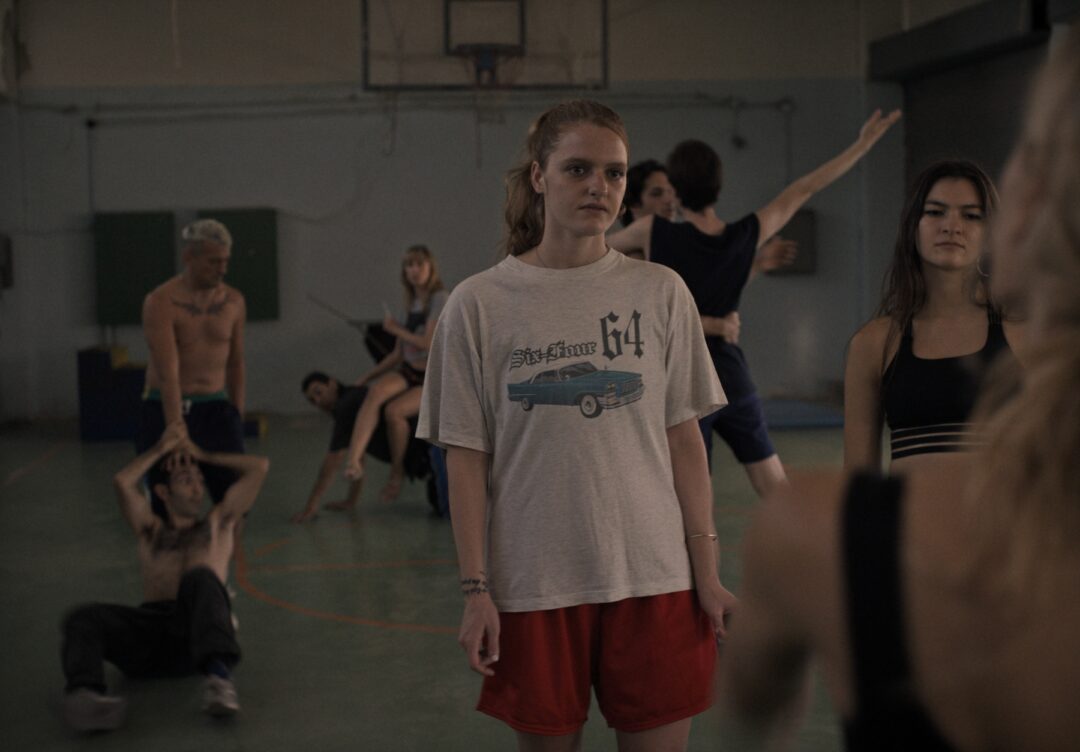
What was the reaction of audiences and critics at the international festivals?
Animal began its run by making its world premiere at the Locarno International Film Festival where Dimitra also won the Performance Award. It was there that the first reviews for the film were written and they were rave reviews. At the same time, we saw the first reactions of the audience which were very touching.
Since then Animal has participated in many festivals worldwide, it has won the Best Film Award three times, at the Thessaloniki Film Festival (Golden Alexander Award/Theodoros Angelopoulos Award), the Vancouver Film Festival and the Cork Festival in Ireland. Dimitra has also received three Best Performance Awards (Locarno, Thessaloniki & Les Arcs in France).
The film has received various other awards such as the Fipresci Award in Mannheim, the Screenwriting Award in Santiago di Compostela, and various others. In mid-January, Animal was released in French cinemas with strong and moving reviews.
*Interview by Dora Trogadi
Read also: Thanasis Neofotistos on his film “Air Ηostess-737” Spiros Jacovides on his movie “Black Stone”
TAGS: ARTS

